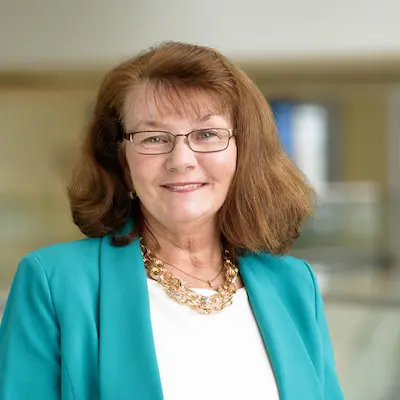Intergenerational Team Talks Boost Age-Friendly University Initiative

03/07/2023
By Karen Angelo
After interviewing a retired professor for a class assignment, nursing major Philip Sawin’s perception on aging changed.
“I didn’t think that people in their later years did much with their lives, but now I appreciate how active people in retirement can be and how much I can learn from them,” says Sawin, a U.S. Air Force veteran who hopes to work with older veterans when he graduates from the nursing program. “The class material and this interview made me think that I would like to work with the older population once I become a nurse.”
Assoc. Teaching Prof. Ramraj Gautam of the School of Nursing pairs students with retired faculty members in his Introduction to Gerontology course.

Psychology major Riley Maskalenko, who interviewed a UMass Boston retired professor of sociology, says that that listening to the professor’s stories of helping others opened her mind about aging. “I felt privileged to participate in my group to talk with someone who led such a remarkable life,” says Maskalenko, who plans to become a psychologist. “Before taking this class, I was scared of growing older. The professor inspired me to expand my vision of the future. The most surprising thing for me was to see aging portrayed in a positive light.”
Funded by the Donna Manning Pilot Research and Scholarship Grant Program, the interviews between students and retired faculty – called Intergenerational Team Talks – bring the UMass system a step closer to realizing the Age-Friendly University designation. In August 2019, the five-campus University of Massachusetts system endorsed the 10 principles of the Age-Friendly University, as defined by Age-Friendly University Global Network at Dublin City University. The international effort highlights the role of higher education in responding to the challenges and opportunities associated with an aging population.

“We know from our research that our retired professors are an underused resource and more than willing to mentor our students,” says Devereaux Melillo. “Faculty share their knowledge and life experiences with our students because it’s very rewarding for them, and our students gain valuable insight into career paths, life decisions and retirement challenges.”
Integrating the Intergenerational Team Talks into the course was a natural fit.
Nursing major Grace Kombo, who interviewed retired Dean of the School of Education Anita Greenwood, appreciated learning about what life is like after leaving full-time work.
“Before the interview, I thought that people retired because they couldn’t keep pace with work demands, but that isn’t always the case,” says Kombo. “Prof. Greenwood travels and is very active in her retirement with her husband. One of the biggest takeaways for me was when she advised us to treat older people with respect and not dismiss them because of their age.”
Greenwood, who had two meetings with small groups of students, was impressed with their questions and the lively discussions.
“The students really wanted to know how I could afford to retire,” says Greenwood. “I let them know that I was fortunate to work in higher education and had a pension, which is rare these days. We talked about finances, so now the seed is planted for them to think about financial planning early in their lives.”
Assoc. Teaching Emerita Prof. Deb Finch of the Manning School of Business, who retired last June, shared her path to working in higher education with the students.
“The students were very interested in how I became a professor, so I told them about how I returned to college to complete my education, which led to opportunities to work at the university,” says Finch. “They had a lot of questions about personal finance and how they can set themselves up for a good financial future. I would like to stay engaged with the university, because it’s very rewarding for me to mentor students and make a difference.”
Prof. Emeritus of Psychology Bill Berkowitz volunteered to be interviewed because he felt the need to give back.
“My time at UML was clearly the best job of my life, and I stay engaged because I like challenging students and being challenged by them in return,” says Berkowitz, who retired in 2003 but continued to teach for a decade afterward. “I’d venture to say that there’s plenty of room for emeritus faculty to contribute to both campus and community, and I applaud UML for its efforts in this direction.”
Gautam, Devereaux Melillo and Prof. Lisa Abdallah are collecting and analyzing data from the fall semester interactions and plan to present and publish the results. In his most recent course of 70 students, Gautam had no trouble recruiting 14 more retired faculty members from the UMass Dartmouth, UMass Chan Medical School, UMass Amherst and UMass Lowell campuses. “Our amazing retired faculty are truly making a difference to our students and to society, which will serve us well in the future,” says Gautam.
